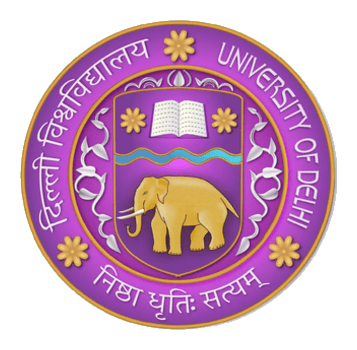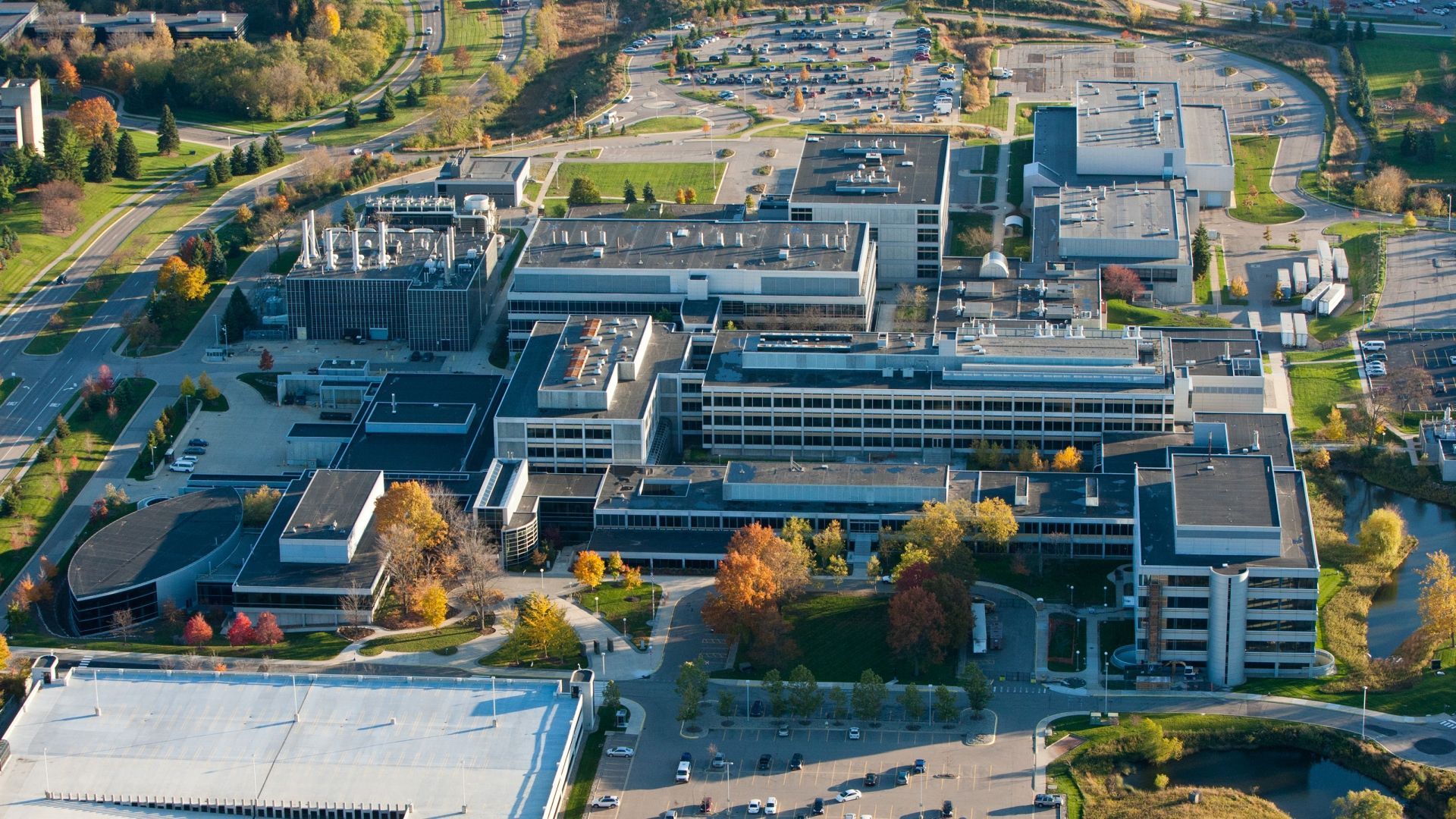
University of Delhi

Prof. Yogesh Singh (Vice Chancellor)
Summary
Delhi University (DU), formally known as the University of Delhi, is a prestigious central university located in New Delhi, India. Established in 1922 by an Act of the Central Legislative Assembly, DU is recognised as an Institute of Eminence by the University Grants Commission (UGC). It is one of the largest university systems globally, with over 400,000 students enrolled across its campuses and affiliated colleges. The university encompasses 16 faculties and 86 departments, with its main campuses situated in North and South Delhi.
Delhi University began with only four affiliated colleges—St. Stephen's College, Hindu College, Zakir Husain Delhi College, and Ramjas College—and approximately 750 students. The Viceregal Lodge Estate, initially the residence of the Viceroy of India, was transferred to the university in 1933 and now houses the vice-chancellor's office. Significant advancements occurred under Vice-Chancellor Sir Maurice Gwyer (1937-1950), who introduced postgraduate courses and established laboratories, contributing to DU's reputation as a leading educational institution.
The university offers a wide array of undergraduate, postgraduate, and doctoral programmes across various disciplines. From 2022, DU has adopted the Common University Entrance Test (CUET) for admissions, moving away from the traditional 12th percentage mark-based system. Notable academic departments, such as chemistry, geology, zoology, sociology, and history, have been designated Centres of Advanced Studies, and several departments receive special grants from the UGC for their outstanding academic contributions.
History
The University of Delhi (DU) was established in 1922 by an Act of the Central Legislative Assembly. The idea of a university in Delhi was first proposed by the Indian National Congress in 1917 during the Imperial Legislative Council. However, it was not until 1922, under the British colonial administration, that the University of Delhi was established. The university began its journey with just three colleges – St. Stephen's College, Hindu College, and Ramjas College.
In its initial years, the university primarily focused on undergraduate education, offering courses in various disciplines including arts, sciences, and commerce. However, as Delhi grew in importance as the capital of British India and later as the capital of independent India, the university expanded both in size and scope.
One of the significant milestones in the history of the University of Delhi was the establishment of Miranda House in 1948, an all-women college that quickly gained renown for its academic excellence and vibrant campus life. Over the years, many more colleges were affiliated with the university, further diversifying its academic offerings and enriching its intellectual community.
In the decades following independence, the University of Delhi played a crucial role in shaping the intellectual landscape of India. It became a hub for academic and cultural exchange, attracting scholars and students from across the country and around the world. The university also emerged as a centre of political activism and social change, with its students and faculty often at the forefront of movements for democracy, social justice, and human rights.
In the latter half of the 20th century, the University of Delhi underwent significant reforms and modernisation efforts, expanding its infrastructure, introducing new academic programs, and adopting innovative teaching and research methods. Today, the university comprises numerous colleges, faculties, and departments, offering a wide range of undergraduate, postgraduate, and doctoral programs in fields as diverse as humanities, sciences, social sciences, commerce, law, and engineering.
The University of Delhi consistently earns acclaim for its academic prowess, ranking among the world's top institutions. In the 2023 QS World University Rankings, it secured a position between 521 and 530 globally and ranked 85th in Asia. Similarly, in the Times Higher Education World University Rankings 2023, it maintained its presence within the top 1000 globally and ranked between 201 and 250 in Asia. Notably, Delhi University leads Indian institutions in the CWUR and stands 8th in NIRF. With an impressive h-index of 192, it continues to ascend in global recognition, solidifying its status as a beacon of academic excellence in India and beyond.
Courses
Delhi University offers a comprehensive array of undergraduate, postgraduate, doctoral, certificate, diploma, and advanced diploma courses across various disciplines, catering to the diverse academic interests and career aspirations of its students.
At the undergraduate level, DU provides a wide range of courses covering fields such as arts, commerce, science, humanities, social sciences, languages, and applied sciences. These undergraduate programs span disciplines including English literature, economics, history, political science, mathematics, physics, chemistry, biology, computer science, business administration, and many more. The university's undergraduate courses are designed to provide students with a strong foundational understanding of their chosen field while encouraging critical thinking, creativity, and intellectual growth.
For postgraduate studies, Delhi University offers a plethora of options for students seeking to deepen their knowledge and expertise in specific areas. These postgraduate programs encompass master's degrees in disciplines ranging from literature, sociology, psychology, and geography to advanced studies in fields like biotechnology, environmental science, commerce, and public administration. Additionally, DU provides opportunities for research and specialisation through its Master of Philosophy (MPhil) programs, enabling students to engage in advanced academic inquiry and contribute to the advancement of knowledge in their respective fields.
In addition to traditional academic programs, Delhi University offers a variety of certificate and diploma courses, providing students with opportunities to acquire specialised skills and knowledge in niche areas. These certificate and diploma programs cover diverse subjects such as foreign languages, journalism, photography, event management, digital marketing, and financial management, among others. These shorter-term courses are designed to enhance students' employability and facilitate their professional development in specific industries or sectors.
Moreover, Delhi University offers advanced diploma courses in various languages, providing students with opportunities for in-depth study and proficiency in languages such as French, German, Spanish, Japanese, Chinese, and Arabic, among others. These advanced diploma programs cater to students interested in pursuing careers in translation, interpretation, diplomacy, international business, and academia, among other fields.
Global MBA rankings
- In the Centre for World University Ranking (CWUR) ranking, the University of Delhi maintained its position at the top in the country.
- According to the National Institutional Ranking Framework (NIRF), the University of Delhi is ranked 8th overall in India.
- Under the QS BRICS University Rankings, the University of Delhi is among the top 10 Indian public educational institutions/universities and the first among Indian public universities.
- The h-index of the University of Delhi reached 192, one of the highest among Indian universities.
- In the QS World University Rankings 2020, the University of Delhi improved its ranking by 13 places and was ranked 474th.
- Outlook-ICARE India University Rankings 2019 placed the University of Delhi at the 1st position among the top 25 Central Universities and at the 8th rank among top 100 universities.
- The University of Delhi has been ranked as 601-800th in Times Higher Education (THE) World Rankings 2019, 156th in THE Asia University Ranking, and 130th in THE Emerging Economics University Ranking, 2019 among the top Universities.
Job integration rate
In 2023, Delhi University witnessed a significant rise in job integration, with a 10% increase in the median package offered during UG 3-year placements compared to the previous year. Similarly, there was a notable rise of over 3% in the median package offered during PG 2-year placements. The university's Central Placement Cell plays a pivotal role in facilitating these placements, bridging the gap between students and top recruiters. With a focus on enhancing employability and fostering career development, DU continues to provide valuable opportunities for students to integrate into the workforce successfully.
General information
- Delhi University | Wikipedia
- University of Delhi Ranking | DU
- About Us | University of Delhi
- DU Placements 2024: Average Package, Students Placed, Top Recruiters | Shiksha
- NIRF Ranking 2020 - Top Universities in India | Careers360
- DU Delhi Affiliated Colleges List | Careers360
- Delhi University (DU): Admissions 2024, Courses, Fees, Cutoff, Ranking, Placements | Collegedunia
- About the University of Delhi | QS Top Universities
- University of Delhi | Times Higher Education
- DU Delhi: Admission, Courses, Fees, Placements | Careers360
Explore the latest data on Business, Industry Leaders and Influencers, Organizations, Education, and Investors to stay informed and ahead.

Prof. Yogesh Singh (Vice Chancellor)
